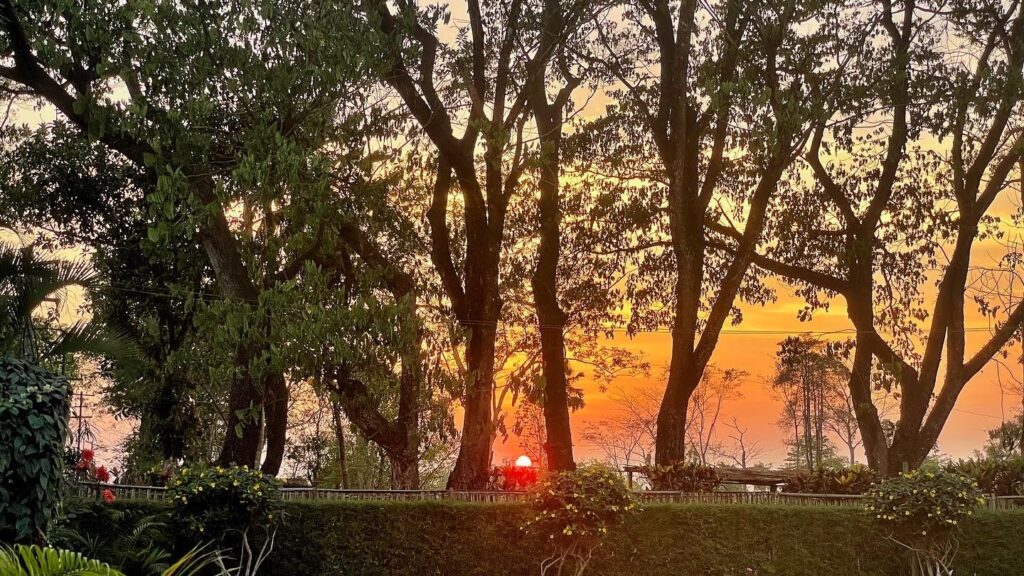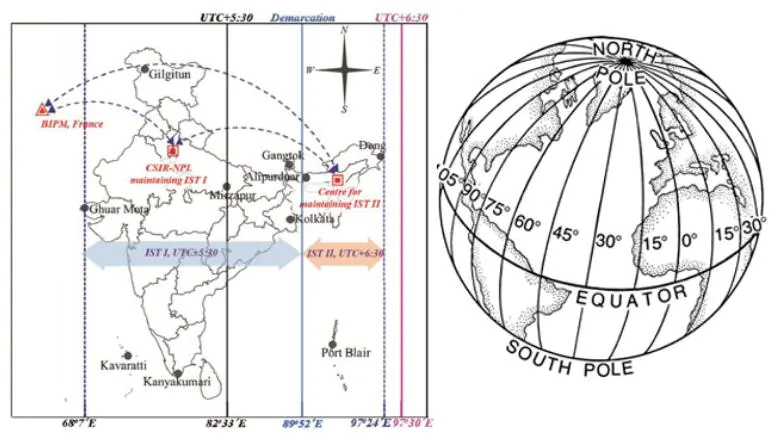
Till six months back, Jaipur, Rajasthan was where I conversed with the sun, engaged in romantic rendezvous with the moon and awaited the dawn and dusk at the same time as the rest of India! What’s the big deal about it!!! Dawn is dawn, somewhere around five in the morning or six, if it’s winter.
And then I moved to North East; that too, far east! And boy, how everything changed! Dawn is still dawn but at a different time when compared with the Western part or even the Northern part of India. The sun rises here as early as 4am IST, in summers and when the rest of India barely gets the glimpse of sun at around 7 am in winters, we are at loggerheads with it even before six!!!!!
It certainly caught my body unaware. While the sun shone brightly at around five, my body wouldn’t respond to it till seven or eight, despite being a morning person! It felt like jet lag, something that one experiences after having travelled through different time zones as body takes times to adapt to new biological rhythm, which requires it to attune its physiology as per the local solar cycle. The rising and setting of the sun impacts our body clocks or circadian rhythm. As it gets darker in the evening, the body starts to produce the sleep hormone melatonin, which helps people nod off. Even though, I am an ‘early to bed’ person, it didn’t feel great that my eyelids would start feeling heavy from six in the evening. Now this was a new benchmark even for me!!!! However, I admit, in this side of the world, it feels like nine, with sun having already set at four!
Soon enough though I adjusted to the calling of new circadian rhythm of my body and now find myself up and about at four in the morning. But then realized that adjusting to this new cycle was not the only challenge. There were worldly concerns too, to address. The offices, markets, schools; they all start at the same time as their counterparts in the rest of India, with one catch though, when it’s 9am for the rest of India, it’s actually 11 am ( as per the longitude position) in the eastern India. Also, since the sun sets in early; in effect, we are left with a very short functional day.
Now here, before I proceed further, let me introduce you to some perspectives on time and how only one time zone, despite the vastness of our country, is affecting lives here in the North east.
Time Zones
Earth is divided into 360 vertical lines or the longitudes. A shift in every longitude gives a time difference of four minutes; so, the planet is divided into 24 time zones. Twenty-four hours of a day are divided by 360 degrees — a complete revolution of the earth on its axis.
So, a distance of 15 degrees on the map amounts to a difference of one hour, and one degree on the map amounts to four minutes.
Longitude is the angular distance between a point on any Meridian and the prime meridian in Greenwich. The time at Greenwich is called as Greenwich Mean Time (GMT).

Now putting that in Indian context, our country’s West to east distance stretches to almost 3000 km equivalent, extending from 68°7’E to 97°25’E, with the spread of 29 degrees, which amounts to almost two-hours from the geographical perspective.
Therefore, when it is 6 AM in Ahmedabad it is equivalent to 8 AM in Itanagar.
Presently IST is taken from longitude passing through Allahabad and is set at UTC (Universal Time Co-ordinated) plus 5:30 Hrs.
Coming back to the Northeast, the sun rises here as early as four in the morning and in winter it sets by four in the evening. By the time government offices or educational institutions open, many daylight hours are already lost.
By now, I am sure you must have got the gist of the problem. I must add an interesting bit here. In North east, which is the tea bowl of the country, tea garden follows a different time, known as Chaibagaan time (Tea garden Time) which is one hour ahead of IST.
What’s the solution?
Ideally the Chaibaggan time should be followed by the entire eastern regions of India including Andamans and Nicobar, which means having two time zones in the country and seems to be the most plausible thing to do. But the central Govt has consistently been resisting this demand, citing various concerns which include chaos in Railway/Airline timings which may lead to accidents, difference in office/bank timings etc. Really!!! In today’s times, when India is one of the leading tech prowess, these arguments do not hold much water. Can’t we really address this issue, if we as a nation could withstand the changes brought about with the GST bill and demonetisation! So, no I am not buying this excuse.
Afterall, USA has 9 time zones and there are 3 time zones in Australia. Indonesia also has 3 time zones, while Brazil has 4 time zones! Historically even India had three time zones.
I tried to understand the more believable reason. May be, given the diversity and unique constitution of our country, we are bound by a delicate thread of ideas, cultures and values and having one time zone is one of them, giving a sense of unity. Given the turbulent times we live in, this seems rather logical.
Should the other concerns not be addressed then?
As per a research, done by Jeffrey C Hall, Michael Rosbash and Michael W young, for which they won the 2017 Nobel Prize in physiology or medicine- plants, animals, and humans, adapt their biological rhythm so that it is synchronized with Earth’s revolution. And it’s this intricate balance, when maintained, produces the best result. Economical ( according to a study by a research scholar at Cornell University, published in January 2019, India’s single time zone causes it to incur annual human capital costs of about $4.1 billion (nearly 29,000 crore rupees) or 0.2% of nominal Gross Domestic Product) reasons besides, this surely calls for a rethink.
What about a compromise?
The political compulsions might have its merit. But what about adjusting the IST itself by half an hour! As per calculations, advancing IST by half an hour would result in saving 2.7 billion units of electricity every year, and some respite from biological ill effects.
I suppose its very much doable. Hope someone in a position to change this, is listening. I am all eager to listen to what you have to say on this.
Copyright © Aradhana Mishra
Some informations have been obtained from – Arunachal Times, India Today, Hindustan Times, BBC


Very Informative!
Thank You dear Ketaki; for finding the write up informative and acknowledging the same! Shall look forward to more feedback.